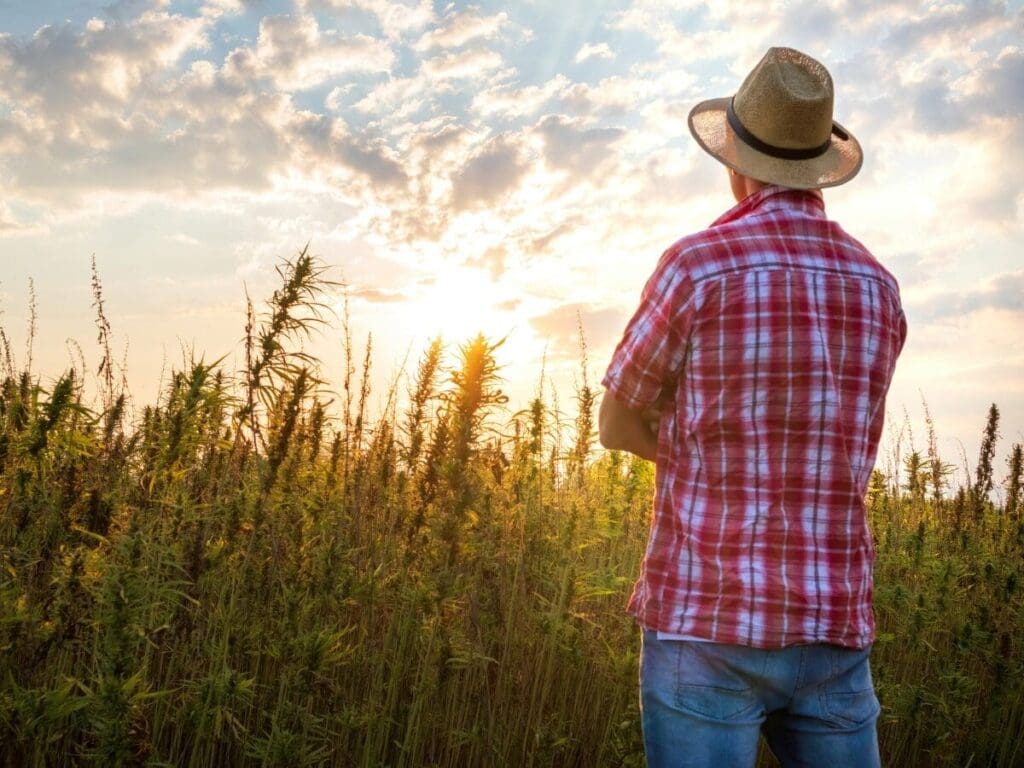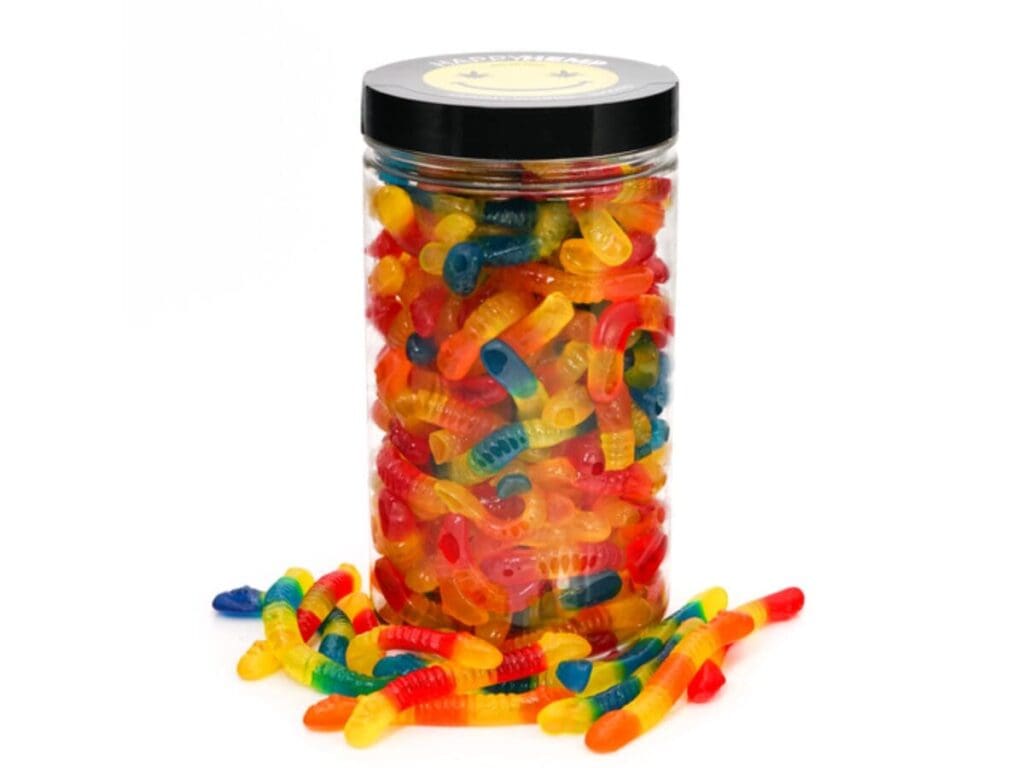Key Takeaways:
- Legal Gray Area: Delta 8 THC is currently legal in Alabama, but its status remains uncertain due to a lack of clear state regulation.
- Hemp-Derived Alternatives: Legal alternatives like CBD, Delta 10, and full-spectrum hemp products provide non-psychoactive options for Alabama residents.
- Future Legislation: Alabama may introduce stricter regulations or potentially ban Delta 8 as concerns about its safety and lack of oversight grow.
As Delta 8 gains popularity as a less potent alternative to Delta 9 THC, questions surrounding its legal status continue to surface. Many wonder whether Delta 8 is truly a legal option in Alabama, especially given the constantly changing cannabis laws. Understanding where Delta 8 stands legally in Alabama is critical for anyone interested in purchasing or using it.
At Happy Hemp, we pride ourselves on being leaders in the Delta 8 THC market, providing only the highest quality, lab-tested products to our customers. With years of experience in the hemp industry, we have a deep understanding of the legal, scientific, and consumer aspects of cannabinoids like Delta 8. Our commitment to transparency and product safety makes us a trusted authority when it comes to discussing Delta 8’s legal status and its future in Alabama.
In this article, we aim to clarify the legal standing of Delta 8 THC in Alabama, compare it to Delta 9 THC, and explore what the future might hold for this increasingly popular cannabinoid.
Delta 8 THC Vs. Delta 9 THC: What’s The Difference?
Delta 8 THC and Delta 9 THC are two of the most well-known cannabinoids found in cannabis, but they differ in several key ways:
- Chemical Structure: Delta 8 and Delta 9 THC have similar molecular structures, but Delta 8 has a slight difference in the double bond placement. This variation makes Delta 8 slightly less potent than Delta 9.
- Psychoactive Effects: Delta 9 THC is well-known for its strong psychoactive effects, often leading to the “high” associated with marijuana use. Delta 8, on the other hand, offers milder effects, giving users a more subtle experience without the intense psychoactive impact.
- Legal Status: Delta 9 THC is classified as a Schedule I substance under federal law, making it illegal in many states unless for medical use. Delta 8’s legal status is more complex, as it can be derived from hemp, which was federally legalized under the 2018 Farm Bill.
- Therapeutic Benefits: Both Delta 8 and Delta 9 THC are believed to have potential therapeutic benefits, such as pain relief, nausea reduction, and anxiety relief. However, Delta 8 may be preferable for individuals who want these benefits without the stronger psychoactive effects.
While Delta 8 and Delta 9 THC share similarities, their differences in potency, effects, and legal standing make them distinct choices for consumers, especially in states with stricter cannabis laws like Utah.
At Happy Hemp, we offer a wide range of high-quality Delta 8 gummies that are perfect for a smooth, enjoyable experience. Each gummy is crafted with precision for consistency and potency. Try our Delta 8 gummies today and discover a balanced way to relax!
The Current Status Of Delta 8 Legality In Alabama
In Alabama, Delta 8 THC is currently legal, but this could change in the future as the state continues to evaluate cannabis-related substances. Here’s an overview of its legal status in the state:
2018 Farm Bill Impact
The 2018 Farm Bill legalized hemp and its derivatives, as long as they contain less than 0.3% Delta 9 THC. This includes Delta 8 THC, as long as it is derived from hemp. Alabama, like many states, has adopted this federal standard, making Delta 8 products legal for purchase and consumption.
No Explicit Ban
Unlike some states that have banned Delta 8, Alabama has not taken explicit legislative action to outlaw this cannabinoid. As a result, it remains legal under state law, at least for now. However, its legality is subject to change as state lawmakers review the potential risks and benefits associated with Delta 8.
Consumer Access
As of now, consumers in Alabama can legally purchase Delta 8 products from retailers that sell hemp-derived goods, including physical stores and online vendors. However, it is essential for consumers to stay informed about any upcoming changes in the law, as the state continues to monitor the situation.
Federal And State Laws Governing Delta 8 THC
A complex interplay between federal and state laws shapes the legal status of Delta 8 THC. While the 2018 Farm Bill opened the door for hemp-derived products like Delta 8 THC to become widely available, states like Alabama still maintain the authority to impose their own regulations. Here’s a breakdown of how federal and state laws influence the legality of Delta 8 THC.
The 2018 Farm Bill And Federal Regulations
The 2018 Farm Bill, a key piece of federal legislation, legalized hemp and all its derivatives as long as they contain no more than 0.3% Delta 9 THC by dry weight. This bill is significant because it created a legal pathway for Delta 8 THC, which is derived from hemp. Under federal law:
- Hemp is Legal: Any product derived from hemp that contains less than 0.3% Delta 9 THC is legal under federal law.
- Delta 8 Loophole: Since Delta 8 THC is chemically distinct from Delta 9 THC and is typically synthesized from hemp-derived CBD, it has been considered legal by many under the 2018 Farm Bill. However, this classification exists in a legal gray area, as Delta 8 is not explicitly mentioned in the bill.
Alabama State Law On Delta 8 THC
While federal law sets a foundation, each state can enforce its own rules concerning cannabinoids like Delta 8 THC. Alabama has adopted the federal standard in many ways but has not placed explicit restrictions on Delta 8 THC. Here’s how Alabama’s laws relate to Delta 8 THC:
- Adoption of the 2018 Farm Bill: Alabama law mirrors federal regulations regarding hemp. Hemp and its derivatives, including Delta 8 THC, are considered legal as long as they comply with the 0.3% Delta 9 THC threshold.
- No Specific Legislation: Alabama has yet to introduce any state-specific legislation banning or regulating Delta 8 THC directly, unlike some other states. This means Delta 8 products can still be bought and sold in the state under current law.
Economic Implications Of Delta 8 In Alabama
Growth Of The Delta 8 Market In Alabama
The rise of Delta 8 THC has led to a growing market in Alabama, with consumers seeking legal alternatives to Delta 9 THC. This demand has given local businesses, such as vape shops, CBD retailers, and online sellers, a new revenue stream. The availability of Delta 8 products has opened up opportunities for entrepreneurs to establish or expand their business offerings to meet the growing interest in cannabinoids.
Impact On Local Farms And Hemp Production
Delta 8 THC is derived from hemp, which means that the compound’s popularity has had a direct impact on Alabama’s hemp farming industry. The demand for hemp-derived cannabinoids has provided farmers with an incentive to cultivate more hemp crops, contributing to agricultural growth within the state. Hemp cultivation for Delta 8 production has also given Alabama’s farmers a way to diversify their crop offerings and tap into the booming market for hemp-derived products.

Job Creation And Business Opportunities
The demand for Delta 8 THC in Alabama has not only affected retail and farming but has also created jobs in production, distribution, and sales. From processing facilities to distribution networks, the growing Delta 8 industry requires a skilled workforce, which in turn supports job creation across various sectors.
Possible Future Changes In Legislation
Growing Concerns Over Delta 8 THC
As Delta 8 THC continues to gain popularity, lawmakers in various states, including Alabama, have started to raise concerns about its safety and legal status. One of the primary reasons for these concerns is the lack of federal regulation on the production, testing, and sale of Delta 8 products. Because Delta 8 is a relatively new product on the market, there are gaps in research regarding its long-term effects, safety, and potential misuse.
Potential For A Statewide Ban On Delta 8 THC
Some states have already taken steps to ban Delta 8 THC outright, citing its similarities to Delta 9 THC and concerns over the lack of oversight. If Alabama follows this trend, there could be a push to either heavily regulate or completely ban the sale and possession of Delta 8 THC within the state. Such a ban would likely arise from safety concerns, particularly regarding the psychoactive effects of the compound and its availability to minors.
Possibility Of Regulatory Reforms
Alternatively, rather than banning Delta 8 THC, Alabama could introduce reforms aimed at regulating its production, sale, and distribution more stringently. These regulations could include mandatory product testing, labeling requirements, and age restrictions to ensure that only safe, high-quality products are available to consumers.
Lawmakers may also look to align state laws with federal guidelines in the future, especially as the federal government continues to explore possible regulatory frameworks for cannabinoids like Delta 8. With more research and federal direction, Alabama could introduce a clear legal pathway for Delta 8 THC, balancing economic interests with consumer safety.
Legal Alternatives To Delta 8 THC In Alabama
CBD (Cannabidiol)
One of the most popular legal alternatives to Delta 8 THC is CBD, a non-psychoactive cannabinoid found in hemp. CBD has gained widespread acceptance due to its potential therapeutic benefits, such as reducing anxiety, alleviating pain, and promoting relaxation, all without the “high” associated with THC. In Alabama, CBD products derived from hemp are fully legal, as long as they contain less than 0.3% Delta 9 THC. This makes CBD a safe and legal choice for individuals looking for wellness benefits without legal concerns.
Delta 10 THC
Delta 10 THC is another hemp-derived cannabinoid that has recently gained popularity as a potential alternative to Delta 8 THC. Like Delta 8, Delta 10 THC has psychoactive properties, though its effects are often described as more energizing and uplifting compared to Delta 8’s more relaxing effects. Since it is also derived from hemp, Delta 10 currently falls under the same legal framework as Delta 8, making it legal in Alabama under federal law. However, as with Delta 8, its legal status could change in the future.
THC-O and Other Minor Cannabinoids
Other emerging cannabinoids, such as THC-O (tetrahydrocannabinol acetate), are also becoming more prevalent. THC-O is a synthetic cannabinoid that can produce stronger psychoactive effects than both Delta 8 and Delta 9 THC. While it is technically legal under current hemp laws, THC-O exists in a legal gray area similar to Delta 8 and is not as widely available. Additionally, its potency and the lack of research on its safety make it a more controversial option.
Hemp-Derived Delta 9 THC
Interestingly, some manufacturers have begun producing hemp-derived Delta 9 THC products that meet the legal limit of 0.3% Delta 9 THC by weight. By carefully crafting products like gummies or edibles that contain hemp-derived Delta 9 THC within this threshold, these products remain federally legal. Consumers in Alabama can legally purchase these products, but should ensure they come from reputable sources to avoid any legal risks or safety concerns.

Final Thoughts
The legal status of Delta 8 THC in Alabama remains ambiguous, with no specific laws either banning or fully regulating its use and sale. For now, residents can legally purchase Delta 8 products derived from hemp, but the future of this compound is uncertain as lawmakers consider the potential risks and benefits associated with its use. As the debate around Delta 8 continues to develop, consumers need to stay informed about potential changes in both state and federal regulations.
In the meantime, legal alternatives like CBD, full-spectrum hemp products, and other cannabinoids such as Delta 10 THC offer residents additional options. Whether you’re seeking therapeutic effects without psychoactivity or a milder alternative to Delta 9 THC, Alabama’s market for hemp-derived products continues to grow, providing consumers with a variety of choices.
As always, it’s crucial to purchase products from reputable sources that provide third-party testing to ensure safety, legality, and quality. Whether you’re exploring Delta 8 or its alternatives, staying informed and understanding this dynamic industry will help you make the best decisions for your health and wellness.
Read also:
- How To Pass A Drug Test With Delta-8: Essential Tips
- Is Delta 8 Bad for Your Health
- Is Delta 8 Legal In Florida
Frequently Asked Questions About Delta 8 Legality In Alabama
Can you order Delta 8 online in Alabama?
Yes, you can legally order Delta 8 THC products online in Alabama from vendors who comply with federal regulations regarding hemp-derived products.
Can I get in trouble for possessing Delta 8 in Alabama?
While Delta 8 is legal in Alabama, its unregulated status could potentially lead to legal issues if law enforcement interprets the law differently or if products exceed the legal THC limits.
How old do you have to be to buy Delta 8 in Alabama?
There is no specific state law governing the minimum age to buy Delta 8 in Alabama, but most retailers require customers to be at least 21 years old.
Can Delta 8 show up on a drug test in Alabama?
Yes, Delta 8 THC can show up on a drug test. Standard drug tests look for THC metabolites, and Delta 8 can result in a positive test similar to Delta 9 THC.
Are there any restrictions on where you can use Delta 8 in Alabama?
Alabama does not have specific restrictions on where Delta 8 can be used, but it’s recommended to follow general public consumption laws, as with tobacco and CBD products.
Can you fly with Delta 8 from Alabama?
You can legally fly with Delta 8 THC domestically if it complies with the 0.3% Delta 9 THC limit, but you should always check airline and destination state rules before traveling.
Can Delta 8 be prescribed by a doctor in Alabama?
No, Delta 8 THC is not a prescribed substance, and doctors in Alabama cannot legally prescribe it. Its sale and use are primarily driven by consumer demand, not medical regulations.
Sources:
- Abernethy, A. (2019). Hemp production and the 2018 farm bill. US Food and Drug Administration.
- Leas, E. C. (2021). The hemp loophole: a need to clarify the legality of delta-8-THC and other hemp-derived tetrahydrocannabinol compounds. American Journal of Public Health, 111(11), 1927-1931.
- Leas, E. C., Nobles, A. L., Shi, Y., & Hendrickson, E. (2022). Public interest in∆ 8-Tetrahydrocannabinol (delta-8-THC) increased in US states that restricted∆ 9-Tetrahydrocannabinol (delta-9-THC) use. International Journal of Drug Policy, 101, 103557.







